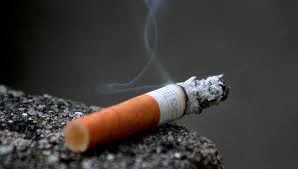Global cigarette manufacturer British America Tobacco was on Monday caught in the eye of a storm amid revelations that it offered a bribe to former Zimbabwean President Robert Mugabe to have some people released from prison.
The sensational allegations, contained in a report following a joint investigation by the Bureau of Investigative Journalists, the British Broadcasting Corporation (BBC) and University of Bath, were made in a programme that aired on BBC Panorama programme on Sunday.
The report alleged that BAT conspired with a South African-based security company to offer a bribe of up to US$500,000 to Mugabe ahead of the 2013 general elections.
Citing leaked internal documents, the investigation alleged that BAT funded a network of almost 200 secret informants in southern Africa as part of its war against the black market cigarette trade.
Most of the work was outsourced to a South African private security firm Forensic Security Services (FSS).
Internal documents showed that in one such operation, FSS staff were instructed to close down three cigarette factories run by BAT’s competitors in Zimbabwe, the report said.
FSS allegedly paid a local security firm in 2012 to conduct surveillance on a Savanna Tobacco — a company run by Adam Molai who is married to one of Mugabe’s nieces. The local firm was, however, found out and three of its directors were arrested.
The directors were charged with illegal surveillance, and their arrests reportedly angered Mugabe who vowed action against BAT.
However, according to BBC Panorama, contractors working on behalf of BAT engaged in a behind-the-scenes operation to bribe Zimbabwean officials and clean the company’s name.
The man who was sent in to negotiate a deal, who requested anonymity, told Panorama that he allegedly bribed a number of government officials to secure a meeting to discuss the men’s case.
He said: “I had to make it clear that they’re going to expect a nice thick envelope of notes.”
An internal memo proposed that a deal be reached in which BAT was to make a donation to Mugabe’s ZANU-PF ahead of the 2013 general elections.
The memo said: “With this donation, they could then go back to the President” to try to get the problem sorted out.
“The amount of the donation would have to be in the region of between USD300,000 to USD500,000 to ZANU PF,” according to the memo cited by BBC Panorama.
The documents do not show whether the bribe was in the end paid, but Panorama has spoken to three sources who have confirmed that BAT was aware of the terms of the deal on offer.
Within days of the deal being offered, all three directors were free.
BAT Zimbabwe has not commented on the allegations.
JN/APA


